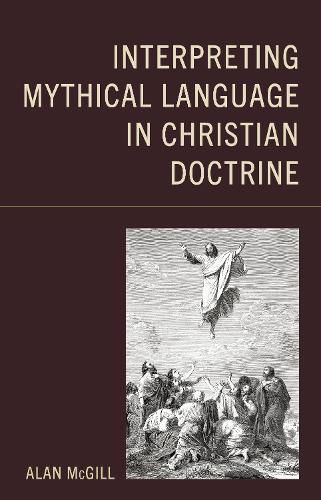Readings Newsletter
Become a Readings Member to make your shopping experience even easier.
Sign in or sign up for free!
You’re not far away from qualifying for FREE standard shipping within Australia
You’ve qualified for FREE standard shipping within Australia
The cart is loading…






When Christians profess faith in the teaching that Jesus "ascended into heaven" and is "seated at the right hand of the Father", what do they mean? And what kind of truth is denoted by the narratives of the battle in heaven, the Fall, the Exodus, Annunciation, the theophanies of the gospels, and Second Coming? Some may interpret these literally and ascribe to a model of faith that quite happily runs contrary to reason and life experience. Many, however, recognize that the language in question is symbolic but it is not always apparent as to what is being symbolized and how such symbolism relates to objective truth claims. In response, Interpreting Mythical Language in Christian Doctrine draws upon the insights of thinkers including St. Thomas Aquinas, Paul Ricoeur, and Carl Jung so as to rescue Christian doctrines expressed through mythical language from an unwarranted expectation that they convey historical, ontological, or much less, scientific truth - or equally concerning, an assumption that these symbols relate only to a subjective form of meaning so that no interpretation is wrong. This book endeavors to unleash the true power of myth to engage with mystery and express meaning in a manner that surpasses the capacities of other genres.
$9.00 standard shipping within Australia
FREE standard shipping within Australia for orders over $100.00
Express & International shipping calculated at checkout
When Christians profess faith in the teaching that Jesus "ascended into heaven" and is "seated at the right hand of the Father", what do they mean? And what kind of truth is denoted by the narratives of the battle in heaven, the Fall, the Exodus, Annunciation, the theophanies of the gospels, and Second Coming? Some may interpret these literally and ascribe to a model of faith that quite happily runs contrary to reason and life experience. Many, however, recognize that the language in question is symbolic but it is not always apparent as to what is being symbolized and how such symbolism relates to objective truth claims. In response, Interpreting Mythical Language in Christian Doctrine draws upon the insights of thinkers including St. Thomas Aquinas, Paul Ricoeur, and Carl Jung so as to rescue Christian doctrines expressed through mythical language from an unwarranted expectation that they convey historical, ontological, or much less, scientific truth - or equally concerning, an assumption that these symbols relate only to a subjective form of meaning so that no interpretation is wrong. This book endeavors to unleash the true power of myth to engage with mystery and express meaning in a manner that surpasses the capacities of other genres.